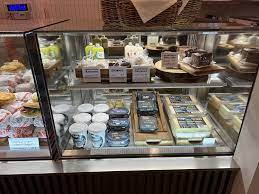Traditional British butchers have spotted a sales boost as shoppers revert to buying meat from local shops. Butchers say they can provide a more trustworthy service, recommending cheaper cuts and demonstrating their full range. Sales Boost As Shoppers Shun Plant-Based Alternatives.
The Q Guild, which represents high end independent butchers, says trade has risen by as much as 30%. And Aubrey Allen, the butchers to The Royal Household, is celebrating 90 years in business this year. Sales Boost As Shoppers Shun Plant-Based Alternatives.

The horsemeat scandal
The discovery of horsemeat in products labelled as beef has shocked many people and is having a lasting effect on how consumers buy their food, says River Research. This is evident in the way that supermarkets and processed food brands are marketing their goods.
Butchers, especially those selling organic meat and rare breeds, have seen their sales surge as people seek reassurance about the source of their food. One butcher on London’s Borough Market, who sells meat from traditional British breeds, said he had seen a 20% to 30% rise in sales.
His family business grew from a backstreet shop in Coventry to supply some of the UK’s best-known restaurants. He says he believes the horsemeat scandal has helped to reassure shoppers about the quality of his product. ‘People realise that it costs money to rear an animal, it has overheads and vet bills,’ he says. ‘There has been a real shift towards buying locally and supporting small businesses.
Vegetarians
The horsemeat scandal prompted some consumers to rethink their meat consumption. Since then, the market has seen a boom in plant-based alternatives such as burgers, sausages and chicken pieces.
This has contributed to a fall in sales of premium red meat cuts at supermarkets, with Kantar Worldpanel data showing that their volumes dropped by 36%. High street butchers have picked up the slack, with beef steak volumes increasing by 26% and roasting joints up by 15%.
The industry has adapted and innovated to meet the demands of a nation during a difficult lockdown. The results of our survey suggest that people value the quality of products offered by local butchers, with over half saying that is the main motivation for visiting them.
Health
In addition to helping shoppers eat more healthfully, plant-based alternatives also help reduce environmental impact by not needing the farmland and animal feed that conventional meat needs. Startups such as Plantible Foods, Rebellyous Foods, and Livekindly are advancing their technology to make plant-based products more convincing to consumers skeptical of ditching traditional protein.
But while some startups have received hefty investment — including the blockbuster initial public offering of Beyond Meat and the unveiling of an Impossible Whopper at Burger King locations nationwide, which drove sales up to $7B in 2021 for the company — others are struggling with consumer rejection. Sales of refrigerated plant-based meat products at retailers have fallen, and many a vegetarian shopper has traded down to less-expensive real meat.
Providing more information about sustainability credentials could help, as would connecting these products with the growing movement of “woke” consumers.
The economy
Curiosity, a desire to improve their diets and a commitment to more sustainable practices are driving millions of consumers to trial plant-based alternatives. Some reduce meat consumption while others go completely vegan or vegetarian.
But despite all the hype, the vast majority of shoppers are not jumping on the meat-free bandwagon. Yorkshire-based plant-based sausage company Heck recently announced that it was cutting 80% of its product range, keeping just two of its ten original options: burgers and chipolatas.
While the coronavirus outbreak has cast traditional meat production in an unappetising light, the broader economic squeeze is also impacting the market. Retailers’ private label offerings are gaining share at the expense of meat substitute brands, with volumes down 5.9%. Consumers say that providing greater detail on the environmental credentials of meat substitute products could make them more appealing. Once the income pressures ease, long-term predictions suggest that the focus on sustainability is likely to resurface, fuelling demand for meat substitute products needs read more hear.


















